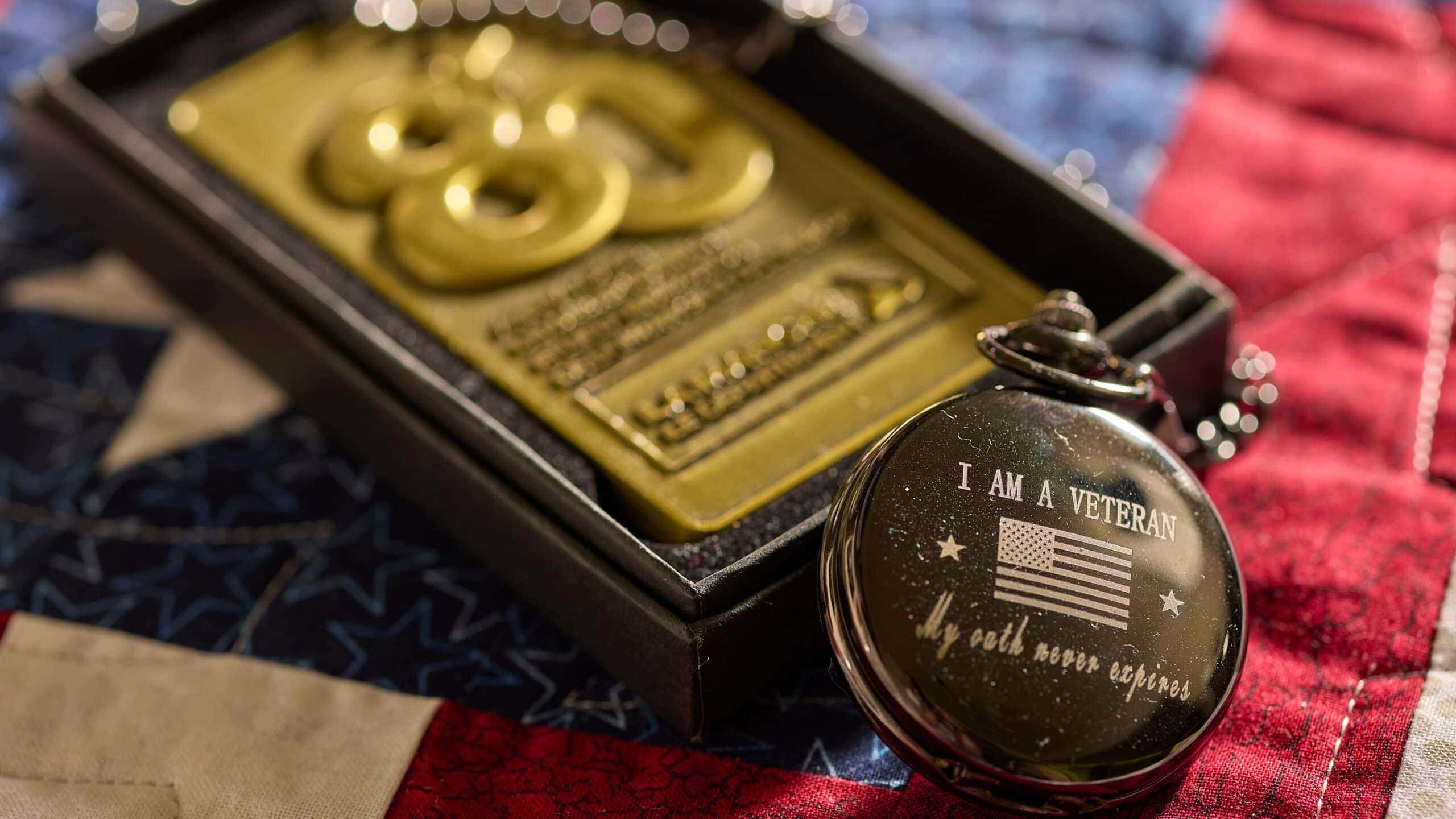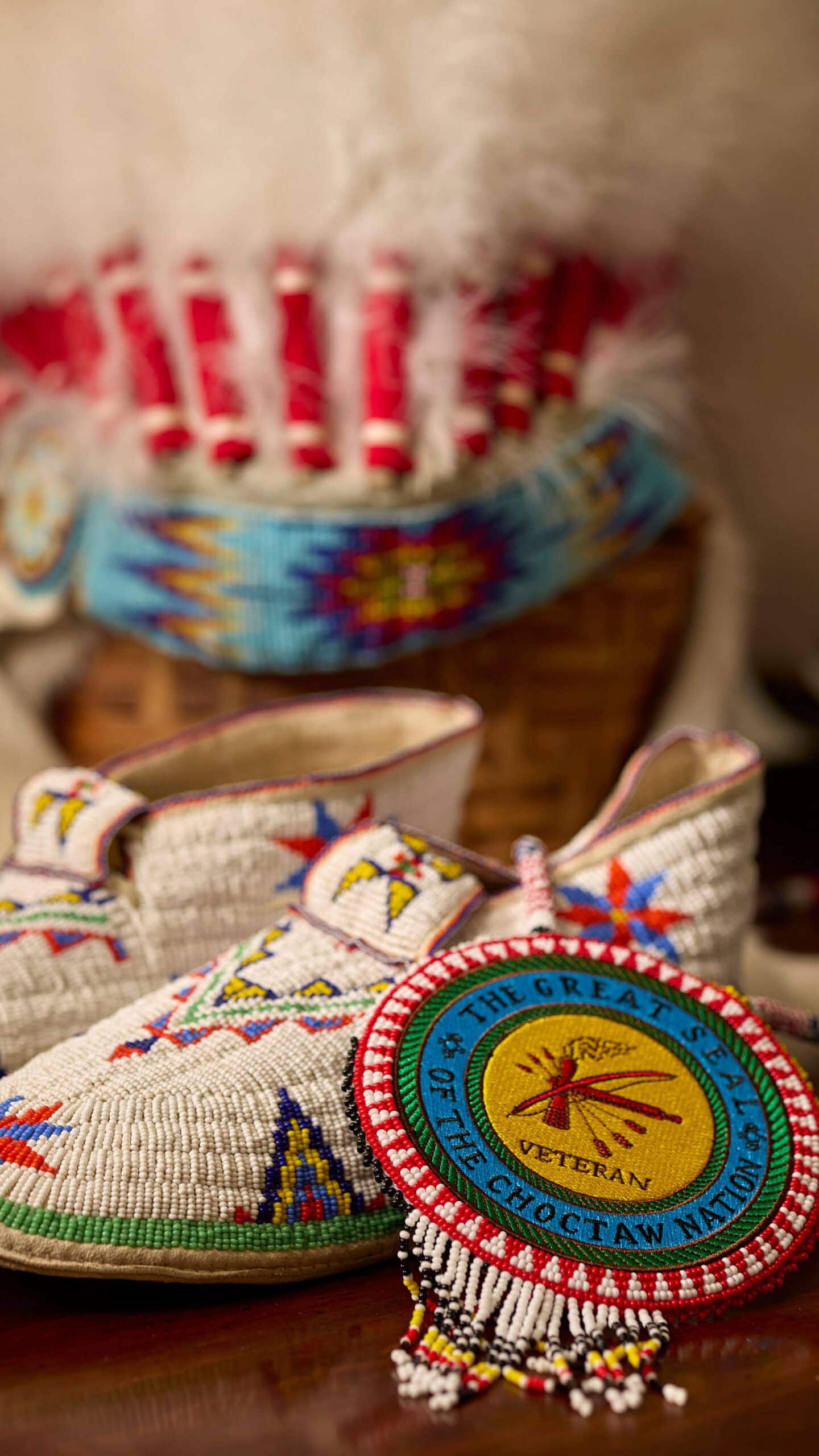In Memory of Elder and Culture Keeper Gilbert “Choc” Charleston
The Choctaw Nation is saddened by the recent loss of our friend, elder, and culture keeper, Gilbert “Choc” Charleston. His service to our country and the Chahta people has left an enduring legacy.
Gilbert “Choc” Charleston, a proud World War II veteran and citizen of the Choctaw Nation, has lived an extraordinary life marked by resilience, discipline, and deep commitment to his family, community, and country. Born in rural Oklahoma in the 1920’s, Choc grew up in a “house full of kids” that faced many hardships but was always full of love. After a tragic family loss, his parents took in his aunt’s children before going on to have six kids of their own, including Choc.
Despite his father’s ability to provide for the family, Choc’s childhood was humble. The younger children usually slept on the floor. Choc was born on the Payne Ranch, one of the largest in the county, where his father worked with cattle and horses. From a young age, he learned to swim, ride horses, and embrace a rural lifestyle.
Choc began in 1929 in a one-room schoolhouse with only twenty-five students. Students were often punished if they spoke Choctaw, though many had only ever spoken that language.
“If we spoke one word in Choctaw, we got beat with a rubber hose,” remembered Choc. “So, we didn’t try to speak our language, even though that’s what we had learned at home.”
Later, his family moved to Duncan, Oklahoma, where Choc experienced amenities such as sleeping in a bed, electricity, indoor plumbing, and a Christmas tree for the first time. While these comforts excited his sisters, Choc struggled with the prejudice he faced from white classmates.
“They treated me badly. They called me terrible names, and I’d come home crying every day after school,” said Choc.
He endured many difficult days until his uncle taught him to stand up for himself. After winning his first schoolyard fight, he earned the respect of his peers and began to find his footing in a new environment. He even grew to like school.
Choc said, “From that day on, the little boys were all good friends with me, and I never had a moment’s trouble after that.”

As a boy, Choc helped in his mother’s dry-cleaning shop. Because there was little time for doing laundry at home, his mother insisted he wear clothes that required dry-cleaning, earning him the reputation of “best dressed” at school. His experience working for his mother’s business introduced Choc to the business world, and he caught on quickly. At just seventeen, he was elected president of the Stephens County Dry Cleaners Association, an early sign of his leadership abilities. Always enterprising, he sold candy to local workers and even picked turkeys during the holidays for extra income and a juicy bird for the family table.
Like many young men in the 1940’s, Choc’s path soon led him to serve in the military. He went to California to work in shipyards, welding Liberty ships as America prepared for war. In 1943, he was drafted into the U.S. Army, joining the 739th Tank Battalion. Trained as a Sherman tank driver, Choc thrived in the role, mastering the difficult controls of the massive machine. He took pride in the responsibility, knowing few could handle the challenges of combat driving.

Just lift people up a little instead of just passing by and not even looking at them. The world would be a little better if we would love our neighbors a little more than we do now.
During the war, Choc traveled farther than he had ever imagined, sailing from New York to Liverpool in a dangerous zigzag journey designed to evade German submarines. From there, he and his battalion received their tanks in Wales before moving into France, Belgium, and Germany. He experienced the devastation of war firsthand, from the rubble of bombed-out towns to fierce combat at Aachen, one of the largest battles of the war.
“I’ve never seen so much death and destruction in my life,” Choc remembered.
Through it all, Choc bonded deeply with his fellow soldiers. Tank crews of five men formed tight-knit relationships, though assignments often shifted. These bonds endured long after the war through reunions where the camaraderie of shared sacrifice lived on. His experiences in Europe, including sleeping in mud, fighting in brutal winter conditions, and narrowly avoiding disaster, shaped both his resilience and his gratitude for life.
Choc remembers coming up on a concentration camp toward the end of the war and helping release the people imprisoned there.“I didn’t get out of the tank, but I could see the poor people. All races—French, German, Jewish—everybody they could put in there. Terrible. But at least we got them to where they could walk out and feel free, you know?” he said.
After the war, Choc carried forward the lessons of discipline, perseverance, and community and passed them down to his own children. He remains proud of his service and of the Choctaw values instilled in him from childhood. His story reflects not only the resilience of a generation but also the enduring strength of Native identity through hardship, prejudice, and change.
At nearly 102 years old, Choc looks back on his life with gratitude, humility, and pride. From a boy sleeping on ranch floors to a tank driver rolling through Europe, he has embodied more than a century of American history—one lived with courage, faith, and dignity.



